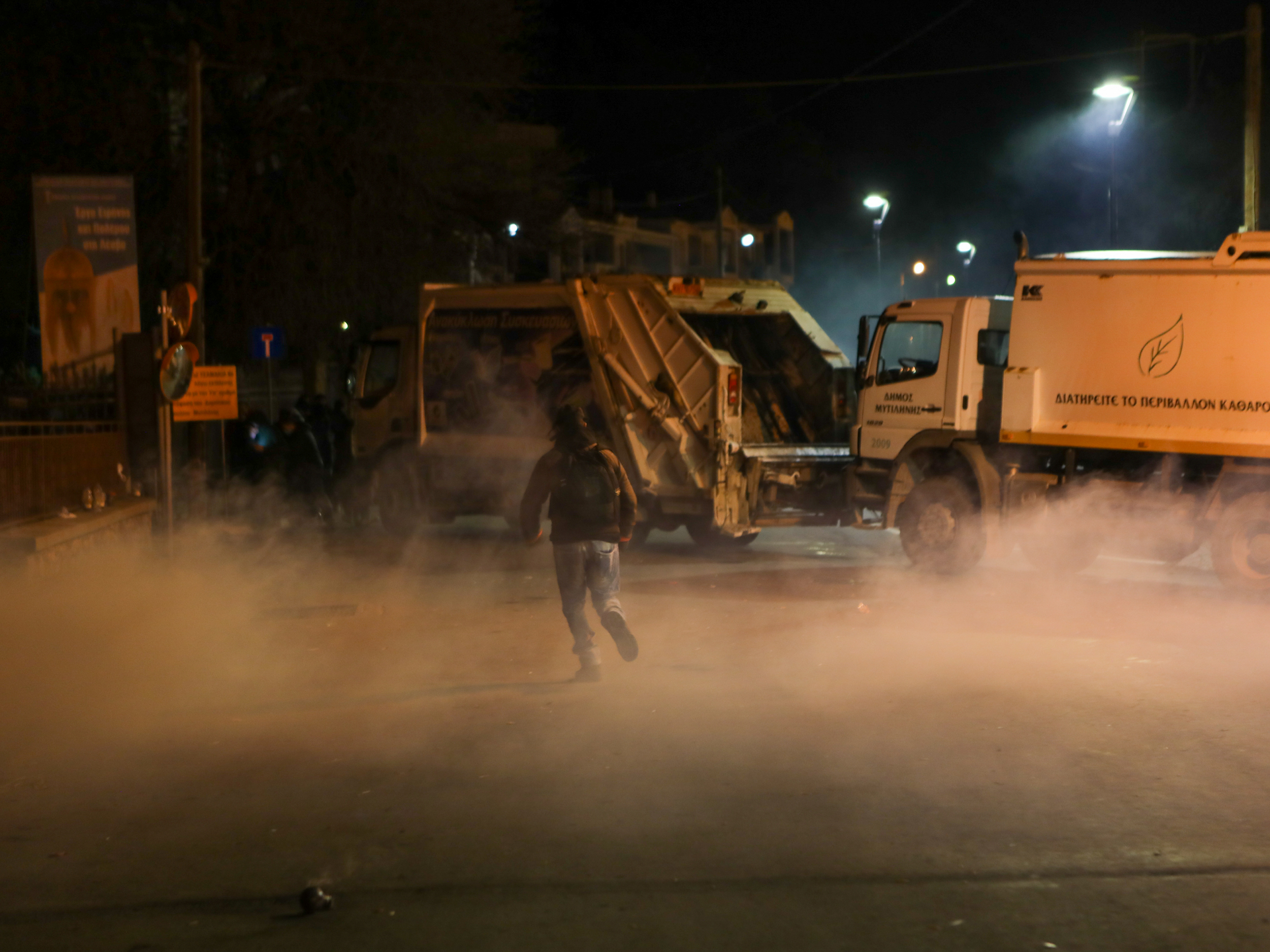Your support helps us to tell the story
From reproductive rights to climate change to Big Tech, The Independent is on the ground when the story is developing. Whether it's investigating the financials of Elon Musk's pro-Trump PAC or producing our latest documentary, 'The A Word', which shines a light on the American women fighting for reproductive rights, we know how important it is to parse out the facts from the messaging.
At such a critical moment in US history, we need reporters on the ground. Your donation allows us to keep sending journalists to speak to both sides of the story.
The Independent is trusted by Americans across the entire political spectrum. And unlike many other quality news outlets, we choose not to lock Americans out of our reporting and analysis with paywalls. We believe quality journalism should be available to everyone, paid for by those who can afford it.
Your support makes all the difference.Riot police were sent to the Greek islands of Lesbos and Chios on Tuesday, using tear gas to try and disperse angry locals protesting against their government’s plans to build new migrant detention centres.
Locals of the islands, which have seen hundreds of thousands of migrants land on their shores hoping to reach mainland Europe, tried to block construction workers from bringing ashore building materials for the new camps.
Witnesses reported about 500 islanders clashing with riot police on the streets as they tried to stop heavy machinery being unloaded onto Lesbos.
In the end, the police fired tear gas in an attempt to control the crowd, which had set fire to rubbish bins and tried to blockade the port using council-owned rubbish lorries. Similar scenes unfolded on Chios also, leading to three people being taken to hospital with breathing difficulties after inhaling tear gas. There were no reported injuries in the clashes in Lesbos.
The conservative Greek government which took power last year has been taking a more hardline approach to the migrant crisis, in an effort to deter would-be asylum seekers.
It announced last month it would build five new migrant centres on several outlying Greek islands including Lesbos and Chios to replace the current overcrowded open camps.
Although the authorities claimed this would improve safety, many islanders strongly oppose the new centres and instead want the government to move the tens of thousands of migrants off the overcrowded islands.
Moria camp on Lesbos alone currently holds about 18,000 people in conditions repeatedly condemned by humanitarian groups.
The International Rescue Committee (IRC), which works in Greece, said it was “gravely concerned” at the break down in order on the islands.
Dimitra Kalogeropoulou, the organisation’s Greece director, said the rise in tensions came as no surprise.
She said: “Local communities have been impacted by the government’s policies towards asylum seekers, especially the containment policy, which has trapped over 40,000 people on the islands.
“Tensions like what our teams witnessed last night, increase the complexity of an already very challenging situation, but one thing is clear: overcrowding on the islands is good for no one; local communities feel their islands have been transformed into giant prisons, while asylum seekers are forced to live in dangerous conditions.”
But the Greek authorities have insisted the best solution is to press ahead with building the new, more permanent migrant centres. In particular, officials said they would help prevent the spread of coronavirus.

“It is clearly evident that matters such as the coronavirus can be dealt with swiftly and effectively in a closed facility and not an anarchic, open facility which is a health time bomb,” a government spokesman, Stelios Petsas, said.
However, there have not yet been any confirmed cases of the virus in Greece.
The IRC also condemned Greece for attempting to control the migrant crisis alone and called on other EU nations to “step up in solidarity and share responsibility for protecting people in need”.
Although numbers are significantly down since the EU signed a deal with Turkey in 2016 to limit the flow of those taking the Mediterranean route, they have been steadily climbing for months.
According to the UN’s refugee agency, some 60,000 migrants arrived on Greek islands in 2019 – nearly twice as many as the year before.

Join our commenting forum
Join thought-provoking conversations, follow other Independent readers and see their replies
Comments